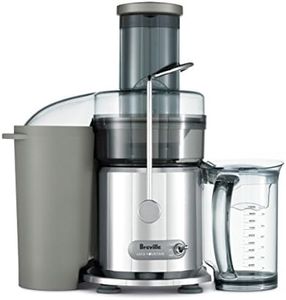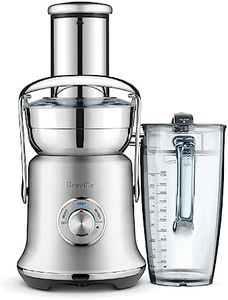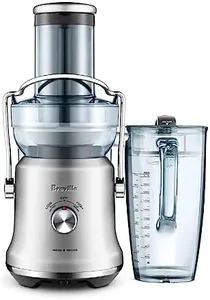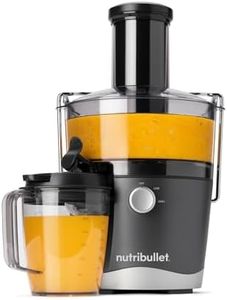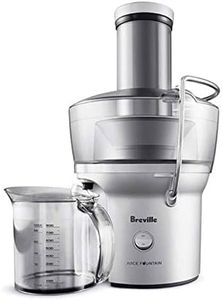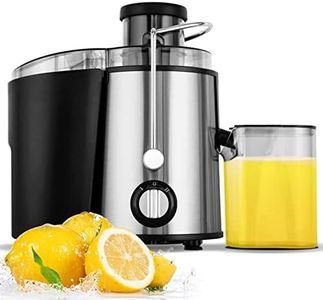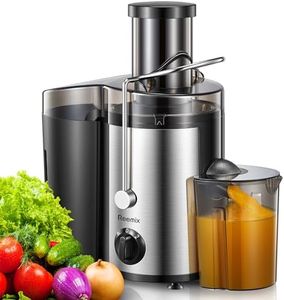We Use CookiesWe use cookies to enhance the security, performance,
functionality and for analytical and promotional activities. By continuing to browse this site you
are agreeing to our privacy policy
7 Best Centrifugal Juicers
From leading brands and best sellers available on the web.By clicking on a link to a third party's website, log data is shared with that third party.
Buying Guide for the Best Centrifugal Juicers
Choosing the right centrifugal juicer can make a big difference in how easy, efficient, and enjoyable your juicing experience is. Before buying, think about how often you'll use it, what types of fruits or vegetables you want to juice, and how much space you have in your kitchen. Understanding the key specs will help you find a model that matches your needs without getting lost in unnecessary features.Motor Power (Wattage)Motor power, usually measured in watts, indicates how strong the juicer’s engine is. More power means the machine can handle tougher fruits and vegetables more easily and is less likely to overheat or slow down. Juicers with lower wattage (around 400-600W) work fine for softer produce like oranges, but may struggle with hard items like carrots. Mid-range motors (700-900W) are generally suitable for most users, blending a good amount of strength and energy efficiency. High-powered machines (over 1000W) are best if you juice in large quantities or frequently process tough, fibrous produce. Your choice should match what you plan to juice most often.
Feed Chute SizeThe feed chute is the opening where you insert your fruits and vegetables. Larger chutes mean less prep work since you can fit in bigger chunks or even whole fruits like apples. Small chutes require you to spend more time chopping your produce into smaller pieces. If you value speed and convenience, go for a juicer with a wide chute. However, if space is a concern, smaller chutes often mean a more compact machine.
Speed SettingsSpeed settings allow you to adjust how quickly the juicer spins. Some juicers only have one speed, while others have two or more. Lower speeds are gentler and are better for soft fruits, while higher speeds work well for harder vegetables. If you want flexibility to juice a wide variety of ingredients, pick a juicer with at least two speeds. If you expect to mostly juice similar produce (only oranges, for example), a single-speed juicer might be enough.
Pulp Container CapacityThe pulp container collects the leftover pulp during juicing. Bigger containers let you juice more at a time before stopping to empty it, which is handy if you're making juice for several people or large batches. If you only expect to make a glass or two at a time, a smaller pulp container will suffice. Think about your typical portion size when deciding.
Ease of CleaningCentrifugal juicers can be tricky to clean, and ease of cleaning is an important consideration. Some models have dishwasher-safe parts, while others require hand washing. Look for simple designs with fewer crevices where pulp might get stuck. If you plan to use your juicer daily, choose one that is easy to dismantle and clean, since this will make frequent use less of a chore.
Build MaterialsJuicers are made of various materials such as plastic, stainless steel, or a mix. Stainless steel parts are more durable and resistant to staining or odors, but usually make the juicer heavier. Plastic is lighter and cheaper but may break down over time. If you want a long-lasting and sturdy machine, go for a model with more metal components. For occasional use or lighter weight, plastic is generally sufficient.
Noise LevelCentrifugal juicers are typically louder than other types, and their noise level can be a concern, especially in a quiet household or early mornings. Some models are designed to be quieter. If noise is important to you, look for reviews or specs that mention low-decibel operation. If you're less sensitive to sound, this factor may be less critical.
